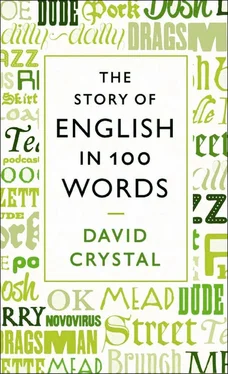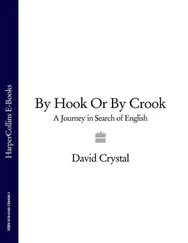 57. Rep — a clipping (17th century)
57. Rep — a clipping (17th century)
If you’re a rep , what are you? In the 17th century, you weren’t one: you had one. Rep was short for reputation . People would say something upon rep , meaning, ‘I’ll stake my reputation on it’.
In the late 1600s it was linguistically fashionable to shorten words in this way. People didn’t say incognito in casual speech, but incog . They said That’s pos or pozz for positive — meaning ‘That’s certain’. And they talked about a crowd of people as a mob . That was a two-stage shortening. Mobile vulgus , meaning ‘fickle crowd’, had come into English at the end of the 16th century. During the next century it was first shortened to mobile , and then to mob .
Words which are reduced in size in this way are called clippings . The essayist Joseph Addison couldn’t stand them. In an issue of the Spectator in 1711 he complained about the way people have ‘miserably curtailed some of our Words’, and he cites all the above. (It didn’t stop him using pozz himself, a few years later, though.)
Clippings are very common in the history of English. The ends of words are clipped in ad, celeb, doc and prof . The beginnings go in phone and burger . And both beginning and end go in flu and fridge . They are typically informal in style, but in many cases the clipping has lost its informal tone and become the regular expression, with the full form perceived as more formal or precise: think of the full forms of fax, memo, gym, exam, vet, pub and flu . In some cases, such as bus and cello , the original full form ( omnibus, violoncello ) is hardly ever used. With mob , never.
Just because a word is clipped doesn’t stop it changing in meaning, of course, and the history of rep illustrates the point perfectly. In the 18th century it became a shortened form of reprobate — an immoral or dissolute person. A woman with a doubtful reputation was a demi-rep . At the same time, the clipping appeared with a capital R , first for Republic , then for a member of the House of Representatives (in the US political system) and in the 19th century for a member of the Republican Party.
The 20th century saw further developments. From around 1900 rep (for repertory ) became the normal way of referring to a theatre company that put on a regular programme of plays. Actors appeared in repertory , or in rep . Then, during the century, reps turned up as representatives of all kinds of organisations. Holiday reps looked after you when you travelled. Union reps looked after their members. Sales reps tried to sell you things.
Since the 1930s, rep has also been short for repetitions . Instructions to perform an activity repeatedly are a routine part of many sport or health programmes. Twenty reps. Fifty reps. How many reps does it take to strengthen a muscle? Body-builders know.
 58. Americanism — a new nation (18th century)
58. Americanism — a new nation (18th century)
The United States hadn’t been born five years before the word Americanism was invented. It was coined by John Witherspoon, a Scottish minister who had become president of the College of New Jersey. Writing in a Pennsylvania journal in 1781, he says he made the word up on analogy with Scotticism . Any usage different from what was used in Britain he would henceforth call an Americanism .
The word caught on and was soon applied to everything American — behaviour, customs and institutions. It was all part of the process of forging a new national identity. When Noah Webster compiled his Compendious Dictionary in 1806, he emphasised the word’s general meaning, defining it as a ‘love of America and preference of her interest’.
This was the first dictionary to contain words specific to the USA. We find in its pages such local items as butternut, caucus, checkers, chowder, constitutionality, hickory, opossum, skunk and succotash . And we see the first sign of the spelling innovations which would soon become the hallmark of American English, such as color and defense .
Two hundred years on, a dictionary of Americanisms would be large indeed, especially if regional variations in usage were included. The five volumes of the great Dictionary of American Regional English contain several thousand entries. What words do people use for a strip of grass between the sidewalk (in Britain: pavement ) and the street? The research team found boulevard, devil strip, grass plot, neutral ground, parking, parking strip, parkway, terrace, tree bank, tree belt, tree lawn and many more.

12. The British and American covers of this book in the Harry Potter series show how linguistic and cultural differences can affect even titles. The linguistic contrasts include idiomatic expressions as well as single words: ‘Bit rich coming from you!’ says British Harry to British Ron in Chapter 2 of The Chamber of Secrets . ‘You should talk!’ says American Harry to American Ron.
Leaving aside regionalisms, British and American English display hundreds of differences. Take the words for the parts of a car. British terms include wing mirror, number plate, petrol cap, aerial, windscreen, wing, bonnet and boot . The American equivalents are side-view mirror, license plate, gas cap, antenna, wind-shield, fender, hood and trunk . Abbreviations can cause a problem. Some, such as CNN and BBC , have travelled across the Atlantic. Others, such as ATT and BT , haven’t. British people need to be told about the American Telephone and Telegraph Company; Americans, likewise, about British Telecom.
Idioms can be a problem too. Most British people know next to nothing about baseball, so they look blank when they hear about a company that has hit a home run (‘been very successful’). Similarly, most Americans know next to nothing about cricket, so they look blank when they hear about a politician batting on a sticky wicket (‘having a difficult time’). Sometimes there are neat equivalents: if someone is caught off base , that’s baseball’s equivalent to cricket’s caught out .
Many American words are familiar in the UK now, thanks to the prevalence of American TV shows and movies. My five-year-old grandson is already well versed in faucets (‘taps’), drapes (‘curtains’) and railroads (‘railways’), thanks to repeated exposure to Mickey Mouse, Special Agent Oso and other inhabitants of the Disney Channel. I doubt whether American five-year-olds would be so well versed in the equivalent British English words. British English tends to get translated.
Not even Harry Potter is immune. In the British editions, the children eat crumpets and crisps ; in the US editions they eat English muffins and chips . Cookers become stoves , dustbins become trashcans and jumpers become sweaters . But some differences are more cultural than linguistic. In the UK, one of the books was called Harry Potter and the Philosopher’s Stone . In the USA, Philosopher was replaced by Sorcerer .
Читать дальше

 57. Rep — a clipping (17th century)
57. Rep — a clipping (17th century) 58. Americanism — a new nation (18th century)
58. Americanism — a new nation (18th century)











